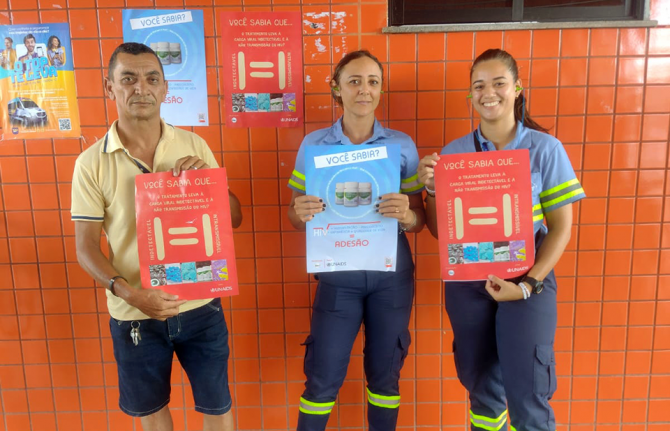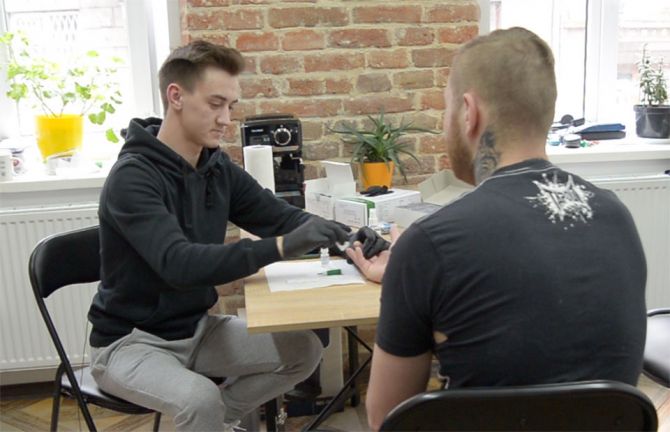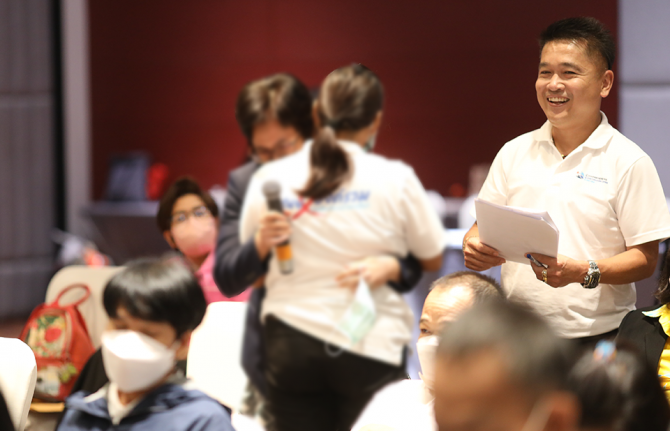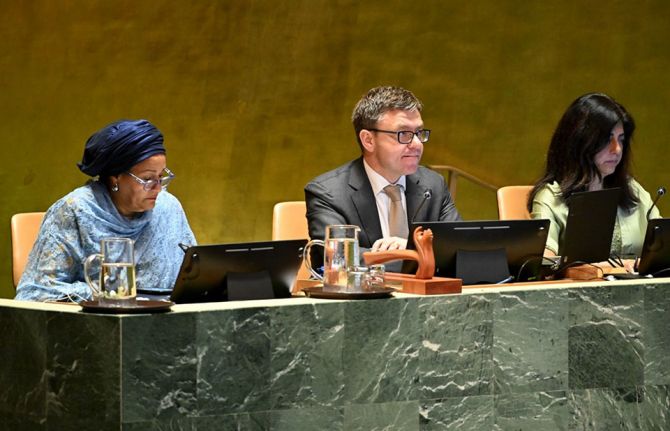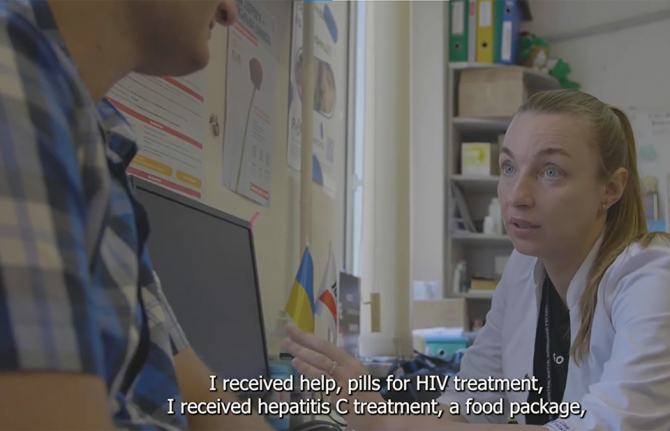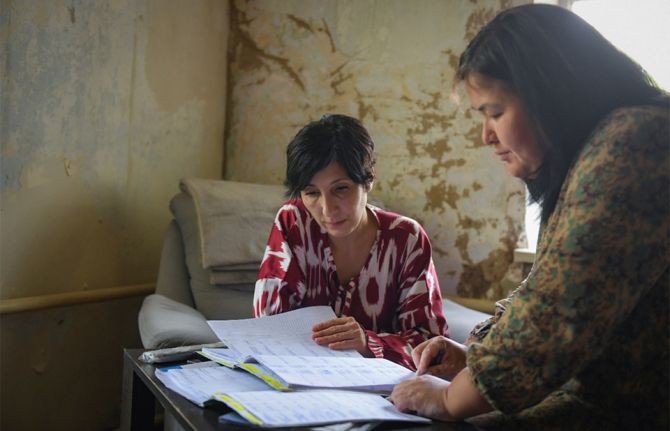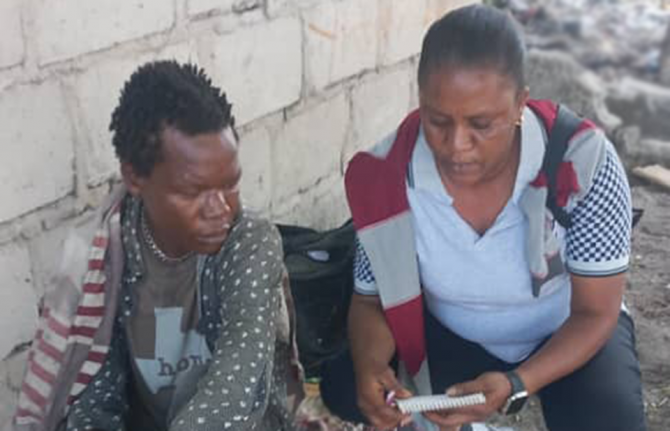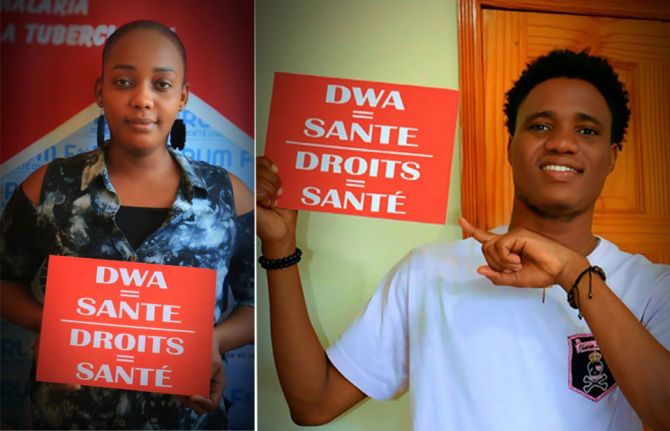
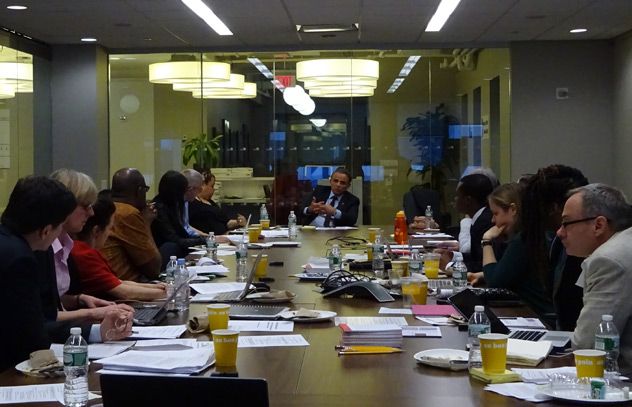
UNAIDS Deputy Executive Director Luiz Loures meeting with civil society leaders on 07 May in New York.
Update
Strategies and synergies for AIDS post-2015
09 May 2014
09 May 2014 09 May 2014UNAIDS Deputy Executive Director Luiz Loures met with civil society leaders on 07 May in New York at a strategic planning meeting cohosted by UNAIDS in collaboration with the Civil Society Working Group on AIDS in the Post-2015 Development Process.
The objective of the meeting was to identify strategies and synergies with the work of governments and civil society partners in order to secure bold targets towards reducing new HIV infections, discrimination and AIDS-related deaths.
Civil society activists emphasized that HIV must have a prominent place in the post-2015 development framework and that promoting and protecting the human rights of all people, ending stigma and discrimination, and promoting equality must be central principles of all post-2015 development goals. Dr Loures stressed the central role that advocates must play in setting the post-2015 agenda.
Quotes
"The UN Secretary-General has made a strong call that “no one will be left behind” and yet we witness a growth of conservative forces from many parts of the world, pushing back on women’s reproductive rights, safe abortion, gender identity and recognition of the rights of people who use drugs, gays, lesbians, transgender people and sex workers. This highlights the importance of our collective activism as we develop the post-2015 development agenda to ensure that rights are a reality for all."
“Activism is what brought the AIDS response to where it is today. We cannot go to the end of the AIDS epidemic without communities at the centre, driving the global community to set a post-2105 development agenda that respects rights and ensures equitable access to services for all, especially people on the margins of society.”

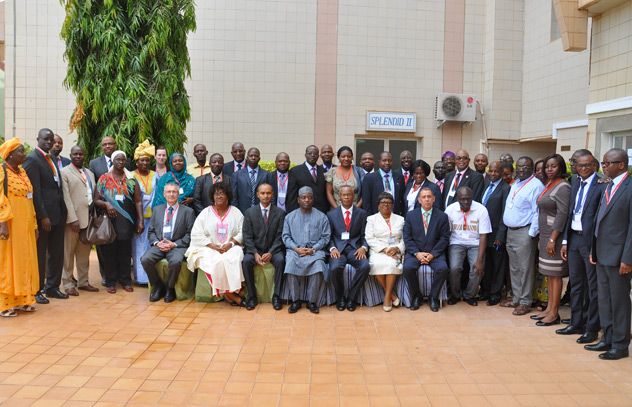
A two-day multistakeholder consultation held in Ouagadougou, Burkina Faso, on 29 and 30 April agreed on the way forward to boost the local production of quality medicines in West Africa.
Update
ECOWAS and partners to boost the local production of quality medicines
01 May 2014
01 May 2014 01 May 2014A two-day multistakeholder consultation held in Ouagadougou, Burkina Faso, on 29 and 30 April agreed on the way forward to boost the local production of quality medicines in West Africa.
Convened by the West African Health Organization (WAHO), the meeting brought together representatives of the Economic Community of West African States (ECOWAS), pharmaceutical manufacturers’ associations, UNAIDS, development banks, including the African Development Bank and the ECOWAS Bank for Investment and Development, as well as major stakeholders from key sectors in the region.
At the meeting, participants adopted the ECOWAS Regional Pharmaceutical Plan (ERPP), which provides a framework to strengthen the pharmaceutical manufacturing industry in West Africa and provides a conducive environment for making quality, safe and affordable medicines accessible to the region’s population.
The ERPP provides a comprehensive framework for WAHO and partners to progress in a coherent and efficient manner to help to solve local medicine accessibility issues. The plan will also supplement the newly established ECOWAS antiretroviral buffer stock mechanism, set up to address the recurrent problem of antiretroviral medicine stocks in the region.
Quotes
"The ECOWAS Regional Pharmaceutical Plan is coming at a very opportune time when countries in West Africa have committed to universal health and antiretroviral therapy coverage."
"Between 60% and 90% of needed essential medicines come from outside the ECOWAS region, thus making its population largely consumers of imported health commodities, and mortgaging our collective regional needs in essential and life-saving medicines to external stakeholders is fraught with danger. The reasonable path is strengthening the local manufacturing of medicines through innovative investments."
"We must forge alliances and strategic partnerships with developing nations that have made tremendous progress in developing their local pharmaceutical industries."
"While we recognize that meeting the region’s demand for formulations and bulk medicines can be a daunting challenge, we should not lose sight of the enormous opportunities, which, if tapped, will reverse the trend of poor access to life-saving medicines."

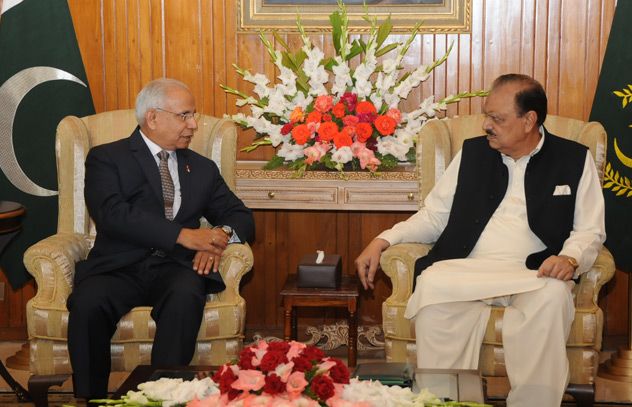
United Nations Secretary-General’s Special Envoy for AIDS in Asia and the Pacific, J.V.R. Prasada Rao, discusses Pakistan’s AIDS response with President Mamnoon Hussain. Credit: Presidency of Pakistan.
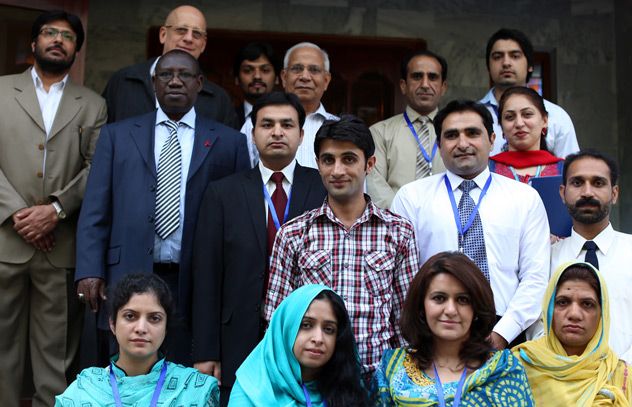
United Nations Secretary-General’s Special Envoy for AIDS in Asia and the Pacific, J.V.R. Prasada Rao (top row, centre), Director, UNAIDS Regional Support Team for Asia and the Pacific, Steven Kraus (top row, second left), and the UNAIDS Pakistan Country Office meeting with members of Pakistan’s Association of People Living with HIV. Credit: UNAIDS.
Update
Pakistan’s President affirms commitment to increase HIV efforts
30 April 2014
30 April 2014 30 April 2014Mamnoon Hussain, the President of Pakistan, affirmed his commitment to continue and increase efforts to respond to HIV in the country. During a meeting with the United Nations Secretary-General’s Special Envoy for AIDS in Asia and the Pacific, Prasada Rao, and the Director of the UNAIDS Regional Support Team for Asia and the Pacific, Steven Kraus, the President also emphasized that with effective support systems in place, HIV can be manageable, treatable and preventable.
The United Nations delegation visited Pakistan from 22 to 26 April to examine the challenges and opportunities for the HIV response in the country, where the epidemic has been expanding during the past decade.
Between 2001 and 2012 Pakistan saw an eight-fold increase in new HIV infections. In 2012, there were an estimated 87 000 people living with HIV. Like most countries in Asia and the Pacific, HIV prevalence is concentrated among key populations at higher risk, including people who use drugs, people who buy and sell sex, men who have sex with men and transgender people.
The Special Envoy and Mr Kraus underlined the importance of ensuring quality and regularly updated data to help better understand and track the progress of the epidemic and current response. Rapid expansion of HIV testing, an increase in HIV prevention programmes, including opioid substitution therapy, and city-based approaches were also highlighted as important for the ongoing AIDS response. Rapid scale up of programmes to prevent new HIV infections among children was urged by the delegation.
The President welcomed collaboration with and support from UNAIDS and the wider United Nations system to help further advance efforts in Pakistan, particularly in the areas of raising awareness among key populations at higher risk and in the elimination of stigma and discrimination.
Quotes
"We can assure you on the Government of Pakistan’s commitment to eradicate this issue and we will also look at other countries in the region to learn from each other and replicate the best practices in Pakistan. I assure you of a positive change in the coming years in Pakistan to deal with the HIV/AIDS issue."
"90% of HIV cases exist in 10–12 major cities of Pakistan. The country must develop strong city-focused health programmes in order to achieve global targets and commitments on HIV. Robust efforts should also be made to scale up HIV testing services. Pakistan is entering a new development cycle and new initiatives can save lives."
"The United Nations and partners are fully committed to working hand in hand to further develop the response in Pakistan. Working across sectors, and together with communities and civil society, we can move closer towards the goal of ending the AIDS epidemic in Pakistan."
Related

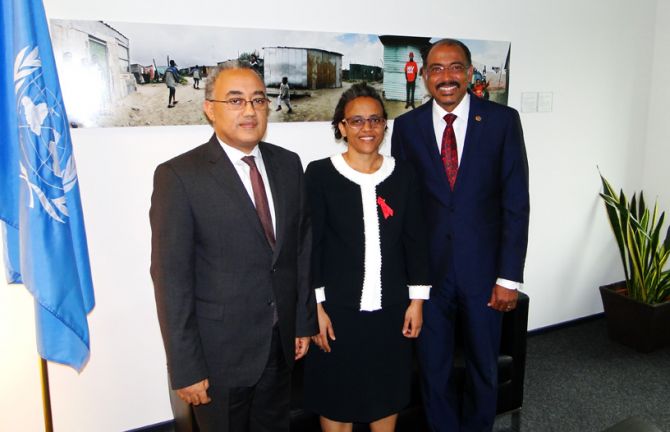
UNAIDS Executive Director Michel Sidibé (right) met with the First Lady of Ethiopia Roman Tesfaye Abneh and Minelik Alemu Getahun, Permanent Representative of Ethiopia to the United Nations at Geneva. Geneva, 28 April 2014. Credit: UNAIDS
Update
First Lady of Ethiopia visits UNAIDS
29 April 2014
29 April 2014 29 April 2014UNAIDS Executive Director Michel Sidibé met with the First Lady of Ethiopia, Roman Tesfaye Abneh, on 28 April at UNAIDS headquarters in Geneva, where they discussed the progress made in the response to AIDS in Ethiopia.
Ethiopia made substantial gains between 2009 and 2013 in increasing access to HIV prevention and treatment services among pregnant women living with HIV and children. As a result, the number of new HIV infections among children dropped by 54% and the prevention of mother-to-child HIV transmission coverage reached 50%.
Mr Sidibé commended the continuous efforts of the First Lady towards the elimination of new HIV infections among children and her commitments to improving the lives of women, young people and children in Ethiopia. Praising her actions, Mr Sidibé stressed that education is critical to reducing the number of new HIV infections, particularly among girls, given the high level of HIV prevalence among women in the country.
The First Lady informed Mr Sidibé about her current involvement in the development of HIV prevention campaigns in Gambella and Benishangul-Gumuz, two of the regions with the highest HIV burden in the country.
The First Lady is a member of the Organization of African First Ladies against HIV/AIDS and is particularly engaged in development work on HIV and gender issues, including maternal and child health and nutrition.
Quotes
"Intensify your leadership so that babies are no longer born with HIV and their mothers are kept alive. That could be your legacy towards vulnerable women and children."
"Joint efforts are needed to redirect our interventions towards high-burden regions and geographical hotspots in view of changing the epidemic trends in Ethiopia."
Related
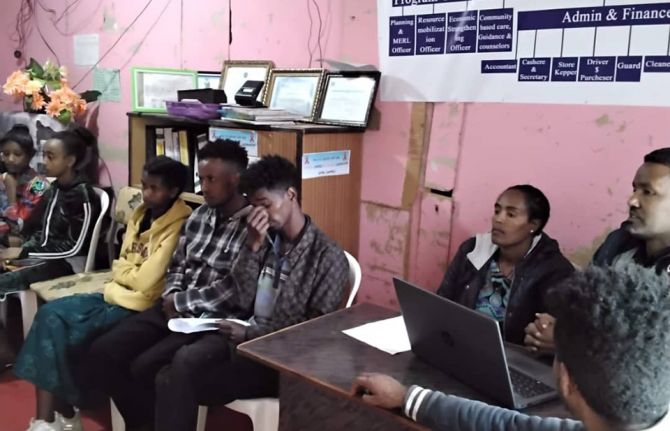 The Breaking Point: A Story from Ethiopia
The Breaking Point: A Story from Ethiopia

06 May 2025
 Impact of US funding cuts on HIV programmes in Uganda
Impact of US funding cuts on HIV programmes in Uganda

19 March 2025

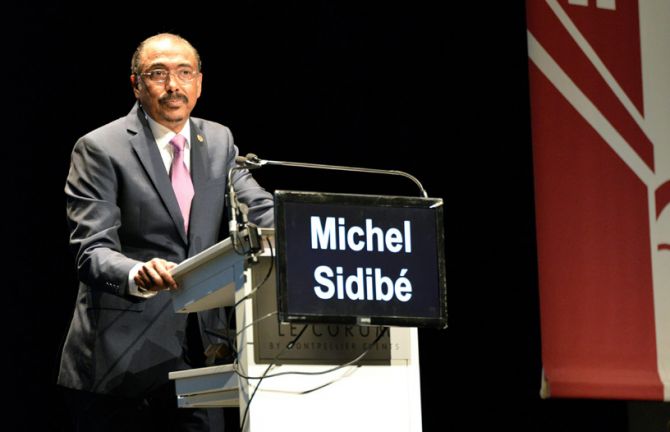
UNAIDS Executive Director Michel Sidibé speaking at the opening ceremony of the 7th International Francophone Conference on HIV and hepatitis, Montpellier, France, 27 April 2014.
Update
International Francophone conference on HIV and hepatitis opens in Montpellier
28 April 2014
28 April 2014 28 April 2014Montpellier, one of the most active cities for HIV research in France, is hosting the 7th International Francophone Conference on HIV and hepatitis. The conference began on April 27 and will run for three days.
This year’s programme will focus on how to respond more effectively to both HIV and viral hepatitis—two interlinking epidemics.
Advances in HIV testing, innovations in antiretroviral therapy, optimum allocation of resources for the AIDS response, HIV among children and adolescents and key populations, including men who have sex with men, people who use drugs and people in prison settings, are topics high on the HIV track.
The hepatitis track will focus on screening and management of hepatitis B— why challenges persist, particularly in Francophone countries in the South, and the accessibility of new hepatitis C treatments.
Speaking at the opening ceremony, the Executive Director of UNAIDS, Michel Sidibé urged the Francophone community to coalesce around a new model of leadership, to join forces and use the lessons and innovation of the AIDS response for other global health challenges. He also reiterated the need for social justice and the importance of leaving no-one behind.
Other speakers at the opening ceremony included Christine Katlama, President of the Association AFRAVIH; Eric Delaporte, President of the AFRAVIH 2014 Conference; Caroline Navarre, representing the City of Montpellier; Isabelle Andrieux-Meyer from the NGO MÉdecins Sans Frontières; Françoise Barré-Sinoussi of the Institut Pasteur; and Philippe Douste -Blazy, Chairman of the Board of UNITAID.
Ahead of the opening, Mr Sidibé hosted a high-level symposium on AIDS in the post-2015 development agenda. Participants agreed on the need to deploy all efforts to not only maintain but scale up momentum which would spur efforts to end the AIDS epidemic as a global health threat by 2030.
Quotes
"The fight against AIDS is a transformative process of a global magnitude. To end the AIDS epidemic we need a bold leadership in our parliaments, our places of worship, our non-governmental organizations, our governments and our communities."
"Mr. Sidibé, as our spokesman, I would encouraqe you to explore a campaign on men in Africa. 30 years later, too many men are still reluctant to get tested, to protect themselves or to even access treatment."
"Implementing scientifically validated prevention tools is an emergency. We need a global response, integrated and coordinated with other emerging challenges. These are the conditions of a success now within our reach."
Related

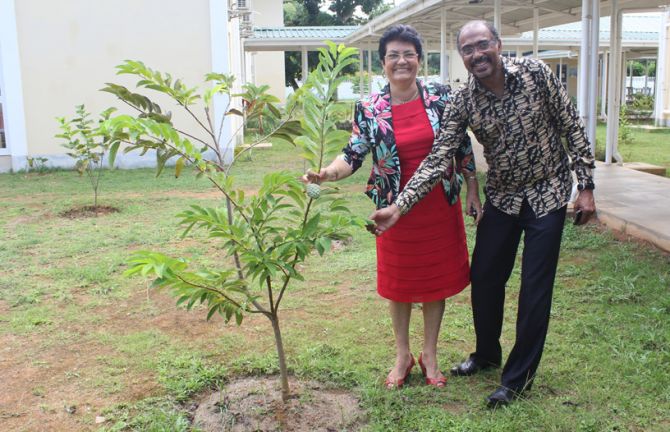
Seychelles Minister of Health Mitcy Larue (left) met with UNAIDS Executive Director Michel Sidibé in Mont Fleuri, Seychelles, on 23 April 2014. Credit: Government of Seychelles.
Update
Seychelles: committed to creating an AIDS-free generation
24 April 2014
24 April 2014 24 April 2014The Government of Seychelles is committed to ensuring a strong public health sector that meets the needs of the country, Minister of Health Mitcy Larue told UNAIDS Executive Director Michel Sidibé on 23 April 2014 in Mont Fleuri, Seychelles.
During the meeting, Mr Sidibé highlighted the leadership of the Government in the AIDS response and its commitment towards an AIDS-free generation. He also urged the Government to develop a sustainability transition plan to ensure that resources are invested strategically in priority areas of the HIV epidemic. Seychelles is currently mobilizing 100% of its HIV funding through domestic resources. According to government figures, in 2012 only two babies were born with HIV in Seychelles and 100% of pregnant women living with HIV were accessing treatment.
During his two-day visit to Seychelles, Mr Sidibé also met with Minister of Foreign Affairs Jean-Paul Adam to discuss the situation regarding the national AIDS response post-2015 and with members of the national AIDS council and representatives of civil society.
Mr Sidibé also visited the Les Cannelles wellness centre on 22 April to learn more about its comprehensive drug treatment programme.
Quotes
"We will equip our young people to become actors of change because getting to zero is also making people responsible for their own health."
"Seychelles will advocate for keeping the AIDS momentum in the post-2015 development framework."
"With an AIDS-free generation, Seychelles is beginning to end the epidemic. In order to sustain the gains we are experiencing, the country needs to urgently develop a sustainability transition plan that takes into account strategic and smart investment."
"I am staying out of addiction and beginning to realize what life is about after six years of using heroin. When you take heroin it makes you feel that you are ok but in reality you are not. My life journey has begun with great support of the staff at the wellness centre. I hope that the centre will always be there for us."
Related

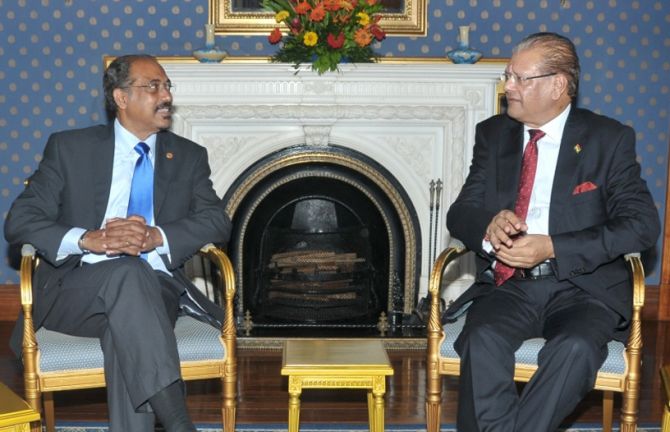
UNAIDS Executive Director Michel Sidibé met with President of Mauritius Kailash Purryag at State House in Le Réduit, Mauritius, 18 April.
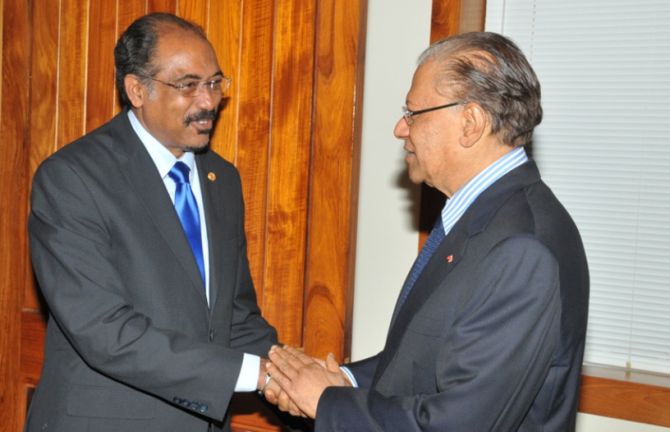
UNAIDS Executive Director Michel Sidibé met with Prime Minister of Mauritius Navin Ramgoolam in Port Louis, Mauritius on 18 April.
Update
Government of Mauritius pledges to working towards removing HIV-related restrictions on stay and residence
18 April 2014
18 April 2014 18 April 2014The government of Mauritius commits to removing the current stay and residence restrictions for people living with HIV. During a meeting with UNAIDS Executive Director Michel Sidibé in Port Louis on 18 April, Prime Minister of Mauritius Navin Ramgoolam pledged to setting up a special committee to review and make recommendations towards lifting the remaining travel restrictions in the country.
Mauritius is one of the 44 countries in the world that enforce HIV-related restrictions to entry, stay and residence for people living with HIV. Welcoming the government’s decision, Mr Sidibé stressed on the need to making sure that people have equal access to freedom of movement – regardless of their HIV status. He added HIV treatment has revolutionized the life of people living with HIV and allowed them to be productive, equal and global citizens.
Earlier in the day, Mr Sidibé met with President of Mauritius Kailash Purryag at State House in Le Réduit to discuss progress and challenges in the national AIDS response. President Purryag outlined his vision to eliminating extreme poverty which is critical to overcoming the AIDS epidemic.
In the last few years, Mauritius has made good progress in its AIDS response. In 2012, only 2 babies were born with HIV in the country and more than 95% of pregnant women living with HIV were accessing treatment. An estimated 11 000 people were living with HIV in Mauritius in 2012 – an increase from 7 300 in 2001. The HIV epidemic in Mauritius is concentrated among people who inject drugs. In 2011, it was estimated that 10 000 people were injecting drugs in Mauritius – 51.6% of people who inject drugs were living with HIV in 2012.
Mr Sidibé commended the government of Mauritius for its leadership and efforts in making an AIDS-free generation a reality. Mr Sidibé also applauded Mauritius for successfully implementing harm reduction programmes in prison settings for people who inject drugs.
According to government figures, HIV infection among people who inject drugs has started to decline from 73% in 2010 to 68% in 2011 due to innovative programmes which provide free syringes and needles as well as opioid substitution therapy.
During his visit, Mr Sidibé also met with the Minister of Foreign Affairs, the Minister of Health, and representatives from the Indian Ocean Commission and civil society to take stock of the AIDS response in Mauritius. The discussions focused particularly on provision of HIV prevention and treatment services to key population at risk of HIV, stigma reduction and equity in the AIDS response, as well as applying regional approach to the AIDS response in the Indian Ocean islands.
Quotes
"Solving poverty will provide the way to getting to zero. Education and health are critical for the fight against AIDS. Mauritius has succeeded in facing the challenge that Africa is now facing –cultivating people and turning them into currency."
"The government will set up a special committee to examine and make recommendations to remove the remaining travel restrictions for people living with HIV in Mauritius."
"Preventing new HIV infections among people who inject drugs and eliminating mother-to-child transmission of HIV is the beginning of the end of AIDS in Mauritius."
Related

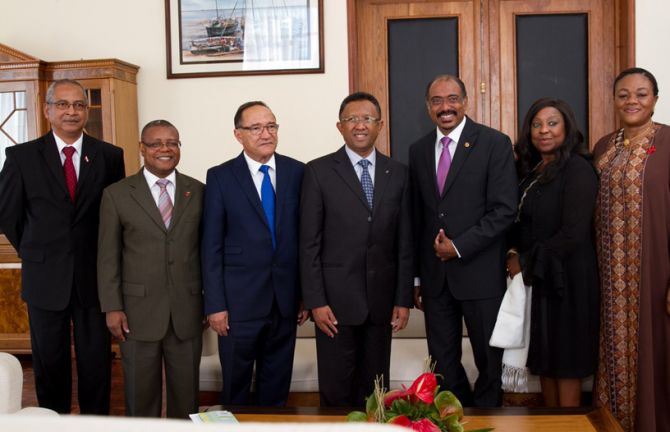
UNAIDS Executive Director Michel Sidibé (third from right) paid a visit to the President of the Republic of Madagascar (middle) on 16 April 2014.
Update
Newly elected President of Madagascar commits to overcoming the AIDS epidemic
17 April 2014
17 April 2014 17 April 2014The President of Madagascar, Hery Martial Rakotoarimanana Rajaonarimampianina, pledged to do what is necessary to overcome the AIDS epidemic and move towards reaching zero new HIV infections, zero discrimination and zero AIDS-related deaths. Meeting with UNAIDS Executive Director Michel Sidibé on 16 April in Antananarivo, the President said, Madagascar can eliminate new HIV infections and in particular ensure all babies are born free from HIV, with the support and goodwill of UNAIDS and the United Nations family.
Madagascar has recently come out of a period of political unrest. Since the January 2014 elections, the new government has been working on improving access to health care services. Mr Sidibé congratulated the President and the strong commitment his government has shown to rebuilding partnerships. He said it was time to put in place an effective HIV response which committed to social justice and eliminated discrimination towards people living with HIV.
Current data suggests Madagascar has an AIDS epidemic which is concentrated among people who use drugs. An estimated 59 000 people were living with HIV in 2012 and 4000 new HIV infections occurred that same year. According to government figures, an estimated 519 people living with HIV accessed treatment at the end of 2013—this represents less than 1% of people who were eligible for treatment under the World Health Organization’s 2013 guidelines. In 2012, only 3% of pregnant women living with HIV had access to services preventing transmission of the virus to their child. AIDS-related deaths increased since 2001––from 4 600––to 6 200 in 2012.
During his two-day official visit to Madagascar, Mr Sidibé met with the country’s Minister of Health, Minister of Youth, President of the National Assembly and representatives from civil society to push for a stronger and more sustainable AIDS response. He also participated in the official inauguration ceremony for the new Prime Minister, Kolo Christophe Laurent Roger, which took place on 16 April at the Office of the Prime Minister.
Quotes
"This country and its people have suffered too much. We are here to give meaning to their lives. We are here to put in place a structure of coordination which will give tangible and measurable results."
"Under the mandate of the new President it is important to have an AIDS-free generation. No child should be born with HIV and no mother should die of AIDS-related illnesses."
Related

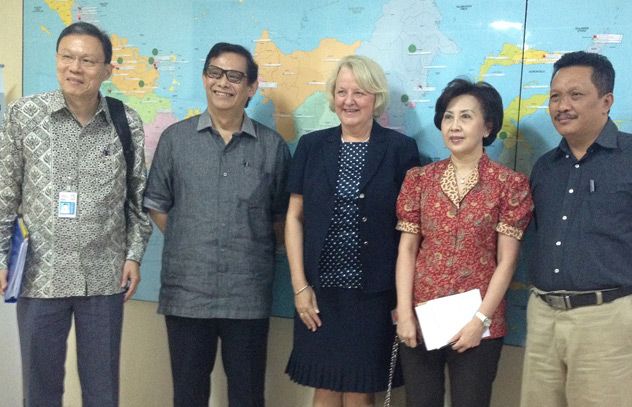
UNAIDS Deputy Executive Director Jan Beagle with the Director of the Indonesian National AIDS Commission, Dr Kamal Siregar at a Jakarta-based “Puskesmas” health clinic that offers HIV and STI testing and counselling and treatment referral in one of the city’s entertainment areas.
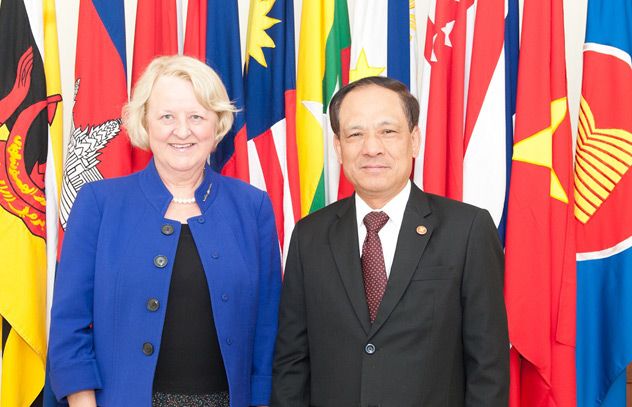
In Jakarta, UNAIDS Deputy Director Jan Beagle met with the Secretary General of the Association of Southeast Asian Nations (ASEAN), Le Luong Minh. Credit: ASEAN Secretariat
Update
Indonesia: City focus key to the HIV response
17 April 2014
17 April 2014 17 April 2014During an official visit of the UNAIDS Deputy Executive Director, Jan Beagle to Indonesia, national and provincial municipal leaders, development agencies and civil society organizations underlined the importance of scaling up and investing in city-based HIV strategies as a critical action towards accelerating progress in the AIDS response.
Speaking with the National AIDS Commission Director Dr Kamal Siregar, Ms Beagle stressed the importance of focusing on city-based HIV responses at a time when the majority of people living with HIV and from key populations at risk reside and/or work in municipal centres. Dr Siregar noted how scaling up programmes and efforts at the city level will enable greater reach to people in need of HIV services, especially among key populations at higher risk.
Jakarta, the capital city of Indonesia is one of the provinces with highest numbers of new HIV infections in Indonesia. The estimated number of people living with HIV in the city as of 2013 is approaching 100 000. According to national surveillance data, estimated HIV prevalence among key populations at higher risk in the city is higher than national averages with 56.4% prevalence found among people who use drugs, 17.2% among men who have sex with men and 10.5% among female sex workers.
Indonesia’s Deputy Minister of Health echoed the need to make cities central to HIV responses noting that city populations often contain large numbers of young people and that youth focus and engagement for HIV is also critical.
Enhanced city-based focus was also welcomed by the Secretary General of the Association of Southeast Asian Nations (ASEAN), which is spearheading the ASEAN ‘Cities getting to Zero’ initiative. Meeting with Ms Beagle, ASEAN Secretary General Le Luong Minh stressed how the ‘Cities getting to Zero initiative’ is focusing on 13 ASEAN cities and municipal areas—which account for large proportions of HIV burden in their countries (including three in Indonesia)—to catalyze country actions towards the achievement of the 2012 ASEAN Declaration on Getting to Zero New HIV Infections, Zero Discrimination, Zero AIDS-related Deaths.
UNAIDS is working to increase the focus on city-based HIV responses. Cities and their importance within the HIV response will also be discussed at the International AIDS Conference to be held in Melbourne, Australia from 20-25 July.
Quotes
"We need to expand comprehensive HIV prevention and treatment in cities to reach the maximum amount of people. We also need to replicate quality and proven city programmes – to from one city to another to help faster and better scale up."
"In our ASEAN ‘Cities getting to Zero’ initiative, the enrolled cities have been very active and enthusiastic. Learning about similarities and differences between the cities on HIV issues is very important. We are documenting the experiences and this will be released later this year."
"From a programme coverage perspective and from an effective investment perspective, increased focus on cities and metropolitan areas can make an important impact. Cities in Indonesia have significant experiences to share that highlight both successes and challenges."
Related

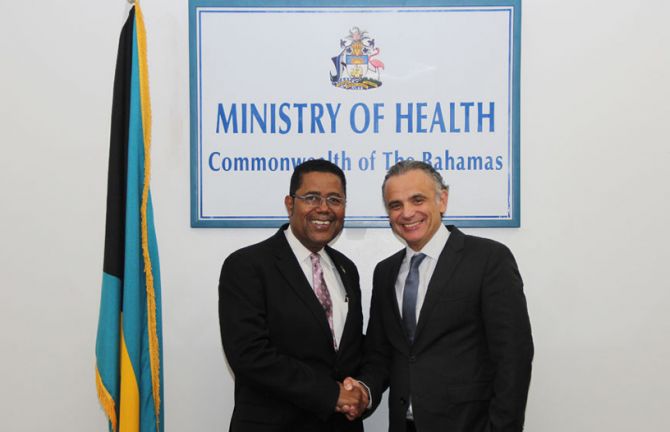
Prime Minister of the Bahamas Perry Christie and UNAIDS Deputy Executive Director Luiz Loures.
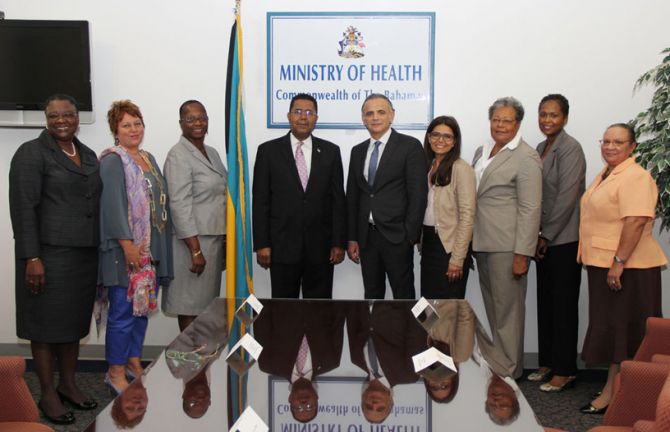
UNAIDS Deputy Executive Director Luiz Loures with Minister of Health of Bahamas, Dr Perry Gomez, Ministry and UN officials. Credit: Ministry of Health Bahamas
Update
Bahamas remains committed to the AIDS response
14 April 2014
14 April 2014 14 April 2014During a visit to the Commonwealth of the Bahamas the Deputy Executive Director of UNAIDS Luiz Loures commended the government on the progress made in curbing its AIDS epidemic.
Once a country with the highest rates of HIV prevalence in the Caribbean, the Government of the Bahamas has taken strong ownership of its response to HIV from the outset, providing most of the funding and human resources from domestic sources. This commitment has resulted in marked progress and the Bahamas was cited by Dr Loures as an example of how political will and leadership are key to advancing progress towards the end of the AIDS epidemic.
Dr Loures also recognized the valuable contributions of civil society, care providers and private sector partners and confirmed that in this global effort, UNAIDS is looking forward to supporting the Bahamas leadership in its quest to end the national epidemic.
The Government reconfirmed its commitment to providing high-quality, accessible HIV services to improve the health and well-being of people living with and affected by HIV.
Quotes
"UNAIDS and the Bahamas remain strong partners in the AIDS response".
"From the beginning of the epidemic, the Government of the Bahamas has made a strong commitment to address AIDS. We are committed to furthering our efforts to curb the epidemic."
"We have seen first-hand the importance of country ownership, and we will continue to lend our support to furthering the efforts to achieve the Three Zeros in the Bahamas and by extension in the Caribbean region".
Related
 Comprehensive Update on HIV Programmes in the Dominican Republic
Comprehensive Update on HIV Programmes in the Dominican Republic

19 February 2025

